

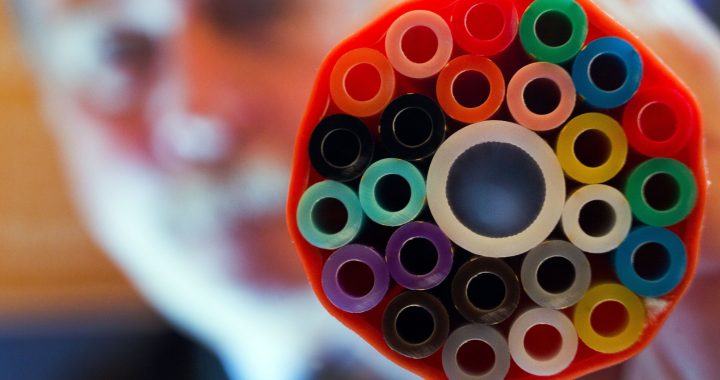 A special pipe system for the laying of fiber optic cables is shown by an employee of WEMACOM during a industry conference for the broadband supply in North Germany in Zarrentin, Germany, 24 November 2011. EPA/JENS BUETTNER
A special pipe system for the laying of fiber optic cables is shown by an employee of WEMACOM during a industry conference for the broadband supply in North Germany in Zarrentin, Germany, 24 November 2011. EPA/JENS BUETTNER
Herticë marks the last village that gets equipped with high speed internet, putting the country among those leading the ranking of countries with internet access.
The village of Herticë, is 12 kilometers from the city of Podujeva. It was the last place among 201 villages to be connected to high-speed internet, as part of the Digital Economy Project, KODE, financed by the World Bank and implemented by the Ministry of Economy of Kosovo.
Residents of the village have welcomed this project, as they remember the difficulties in access to information and communication due to the limited internet services of the very recent past.
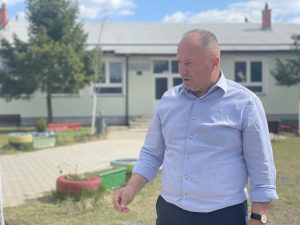
The representative of Herticë, Florim Muqolli, 55, told Prishtina Insight that this project has been very welcomed by the villagers.
“In the past, we had a problem with some cables and we barely had any access. From now on, our citizens, just like every other citizen, teacher, student, doctor and nurse in Kosovo, will have equal access to the internet and necessary information on all subjects, regardless of where they live,” he said.
According to him, the project contributes to their social and economic goals and needs.
Meanwhile, Arlind Haxhiu, 26, a graduate of the Faculty of Agriculture, spoke about the difficulties he faced a few years ago due to connectivity issues in the village.
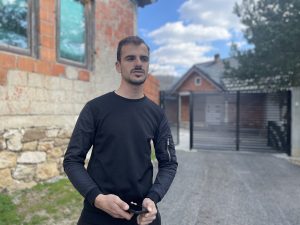
“As a student, 4 or 5 years ago, I lacked adequate internet access. In our village there was not adequate internet access to reach the bibliography we needed as students,” he told Prishtina Insight.
The lack of internet access has been an obstacle for Arlind in his communication with his fellow students as well.
“At that time it was impossible to contact fellow students in any other way; we only met physically to exchange reading materials,” he added.
“Now it’s easier because all we need is there [on the internet] and ready for us to get.”
Quality of internet connection is also helping village farmer, Shemsi Pollomi, 40.
“Having access to the internet is helping us a lot because now we are solving problems over the internet for almost everything. It has also helped me as a farmer to understand more about applying for subsidies,” he told Prishtina Insight.
The implementation of this project began three years ago, in which case 201 villages, with 60,000 inhabitants, have been connected to the internet via high-speed broadband infrastructure.
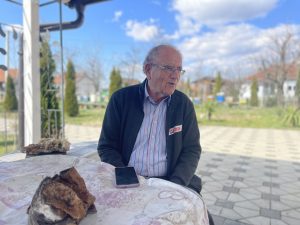
Raif Muqolli, a beekeeper in his mid-sixties, says that for a long time he has been practicing his passion -beekeeping- while the internet has helped him in this activity.
“When there was no internet, I did everything related to beekeeping based on books. Even at the beginning there were difficulties because there were no books on the subject in the Albanian language, only in Serbian,” he notes.
He tells about the difficulties they had due to the inadequate internet access when it came to online chat with family members abroad.
“When my mother wanted to talk to my brother in Germany, she had to go all the way to Prishtina and book an appointment for a telephone call in advance. This is a remote region so, when it was impossible for us to digitally talk to someone, we had to go to the city.”
Fatmir Rudari, 40, lives in the city of Podujeva, but also has a cottage in the village of Herticë.
He says that his children did not want to go to the village due to lack of internet connectivity.
“Now, at least on weekends, my children always come to the village. Plus, now, I have the highest security because I have the cameras in the cottage, there is an alarm for everything and the camera alerts me,” he told Prishtina Insight.
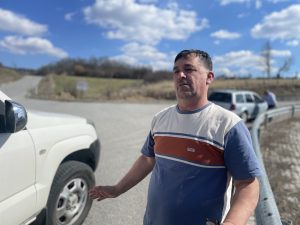
The village’s connection to broadband internet was marked on Tuesday in Herticë, in an event attended by PM Albin Kurti, the Minister of Economy, Artane Rizvanolli, the mayor of the Municipality of Podujeva, Shpejtim Bulliqi and other participants.
PM Albin Kurti said that they are marking an important achievement for the country.
“We are achieving a key objective related to one of the main principles of our government, which is inclusiveness. In our journey towards digitalization, it is important that no one is left behind,” Kurti said, according to a statement of the Government.
Meanwhile, the Minister of Economy, Artane Rizvanolli has said that now, 100 percent of the residential areas of Kosovo are already connected to broadband internet.
“Every citizen, every student and teacher of Kosovo, regardless of where they live, now has equal access to the internet and the information they need,” she wrote on Facebook on March 21.
Meanwhile, the mayor of the municipality Shpejtim Bulliqi commented that 13 villages with 2,303 inhabitants in all, 5 schools and an ambulance have benefited from this project in Podujeva.
“The expansion of the internet and telecommunications in every corner of Kosovo is one of the most important achievements of the era of the tremendous development of information technology,” he wrote on Facebook.
The Kosovo Digital Economy Project, KDEP, that cost 20,700,000 euros is a five-year investment funded by the World Bank and implemented by the Ministry of Economy.
The main component of the Project aims to improve access to high-quality, high-speed broadband services in project areas [villages not covered by high-speed internet services] and to information resources, services and online labor markets for citizens, public and academic institutions.
25 March 2023 - 08:46